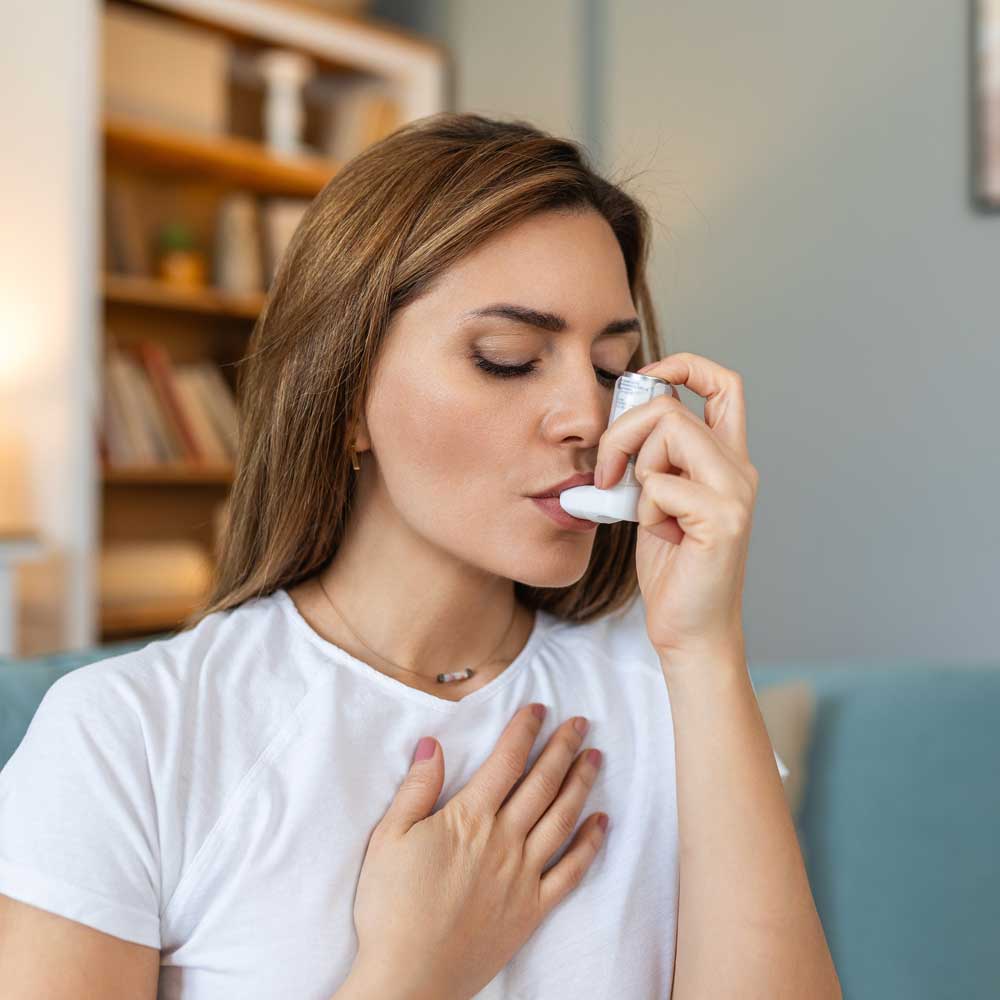
Breathe Easier, Live Better
Asthma Diagnosis and Treatment in Northeast Philadelphia
Asthma can make everyday activities feel like a challenge, especially when symptoms like wheezing, shortness of breath, and chest tightness flare up. At IPMC Health Clinic in Northeast Philadelphia, we provide compassionate, same-day care to help you manage asthma and breathe more comfortably.
Whether you’re experiencing asthma for the first time or looking to better control chronic symptoms, our experienced team is here to support your respiratory health with tailored treatment plans.
Know Symptoms
What Are the Signs of Asthma?
Asthma is a chronic condition that causes inflammation in the airways, making it difficult to breathe. Common symptoms of asthma include:
- Shortness of breath
- Wheezing (a whistling sound when breathing)
- Chest tightness or pressure
- Coughing, especially at night or early morning
- Difficulty breathing during exercise or cold weather
- Frequent respiratory infections
If you experience sudden or severe breathing problems, it’s important to seek immediate medical attention.

Care Process
How We Treat Asthma at IPMC
When you visit IPMC Health Clinic for asthma care, we’ll:
- Conduct a thorough medical history and symptom review
- Perform a physical exam and assess your lung function
- Prescribe rescue inhalers, daily control medications, or combination therapy based on your needs
- Provide an asthma action plan for managing symptoms at home and avoiding triggers
- Offer follow-up visits to adjust your treatment and monitor progress
Our goal is to help you gain control over your asthma and prevent flare-ups before they start.
Trusted Specialists
Why Choose IPMC Health Clinic?
IPMC is here to make managing asthma easier—with expert care that’s local, responsive, and designed around your life.
Same-Day Appointments – Get seen when you need care most
Working Hours – Monday–Thursday, 8 AM – 2 PM
Convenient Location – Right here in Northeast Philadelphia
Bilingual Team – Focused on your comfort and care
Trusted by Families Across the Region
Simply fill out the form, and our team will contact you to confirm your appointment.
Frequently Asked Questions
Asthma Treatment
What are the common symptoms of asthma?
Asthma symptoms can include wheezing, shortness of breath, chest tightness, and coughing—especially at night or after exercise.
Can I visit IPMC for an asthma flare-up?
Yes. We offer same-day care for asthma symptoms and flare-ups. If you’re experiencing mild to moderate symptoms, walk in or call for an appointment.
What causes asthma attacks?
Triggers vary but may include allergens (like dust or pollen), respiratory infections, cold air, exercise, or irritants like smoke or strong odors.
How is asthma diagnosed?
We perform a physical exam, review your medical history, and may conduct lung function tests or refer you to a specialist for further evaluation.
Do you treat children with asthma?
Yes, we provide care for both children and adults with asthma, including guidance on managing symptoms and preventing flare-ups.
What’s the difference between a rescue inhaler and a maintenance inhaler?
A rescue inhaler provides fast relief during an asthma attack. A maintenance inhaler is used daily to control chronic symptoms and prevent attacks.
When should I go to the ER for asthma?
If you have severe difficulty breathing, your lips turn blue, or your rescue inhaler isn’t helping after several uses, seek emergency care immediately.
Can you refill my asthma medication?
Yes, we can assess your condition and provide a prescription or refill if appropriate. Please bring any previous prescriptions or medications with you.
How can I prevent asthma attacks?
Avoid known triggers, use maintenance medications as prescribed, and have an up-to-date asthma action plan. Regular follow-ups also help keep asthma under control.
Is asthma curable?
While there is no cure, asthma is highly manageable with the right treatment, lifestyle changes, and routine care.
